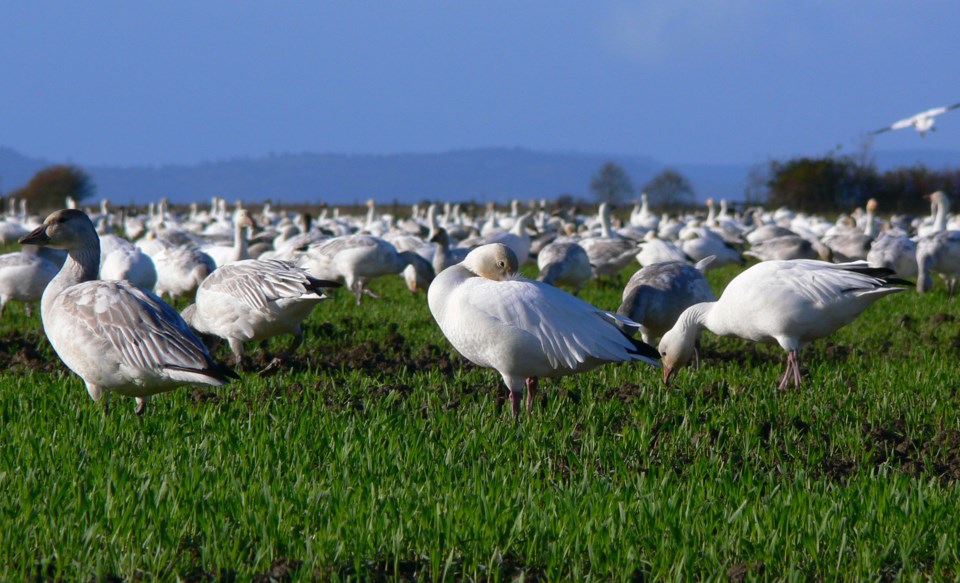It’s been a good year for the Delta Farmland and Wildlife Trust.
In a recent update to the City of Delta’s Agricultural Advisory Committee, DFWT biologist Drew Bondar noted they had an above-average enrolment by local farmers in several programs this year, with approximately $490,000 in cost-share payments for the year.
That’s $135,000 above the past 15-year average.
The DFWT also planted a 190 metres hedgerow, consisting of 350 trees and shrubs.
The DFWT’s annual funding report notes that for the 2019/20 fiscal year, Delta funds, combined with other funding sources, facilitated the planting of approximately 1,018 hectares (2,516 acres) of winter cover crops, approximately 180.5 hectares (446 acres) of grassland set-asides and approximately 198 hectares (489 acres) of forage enhancement lands.
The winter cover crop program aims to supply critical habitat to large numbers of over-wintering waterfowl.
Grassland set-asides, fields that have been temporary removed from production and seeded, contribute to soil conservation by improving soils for farming while at the same time providing wildlife habitat.
Since its inception over 27 years ago, the DFWT has also planted 14,000 trees and shrubs in 26 different hedgerows, totalling 10 kilometres in length.
It has also disbursed $8.5 million in cost-share payments, supported 82,000 acres in winter cover crops, 13,500 acres in grassland set asides, and there have been 8,500 acres of farmland that’s been laser-levelled.
Meanwhile, Bondar also told the committee that the duck and snow goose migration this year is having an impact on farms and marshland.
He noted that in the 1970s, the population of snow geese in the Fraser Valley in the winter was estimated at approximately 15,000, and this year it is estimated at between 200,000-to-220,000.


